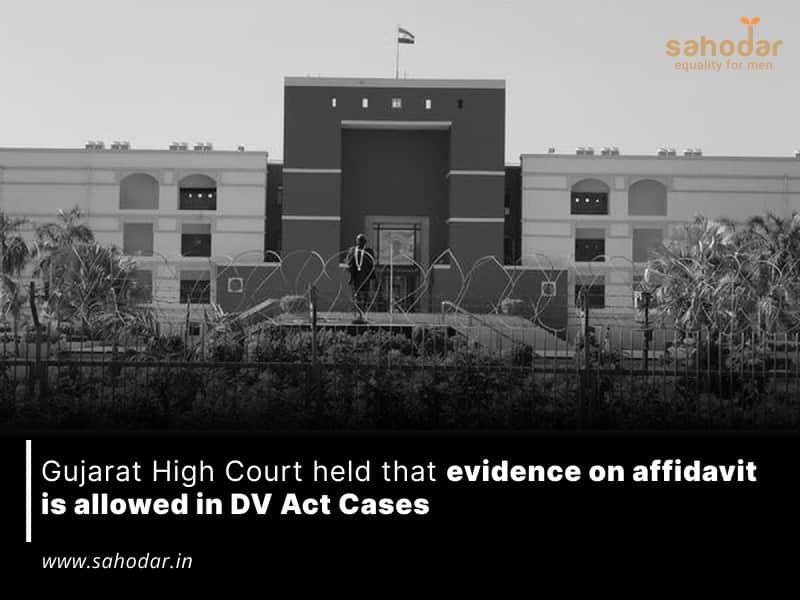Courts can deviate from the set procedure stipulated under the Domestic Violence Act and can develop their procedure that may include furnishing evidence through affidavit.
The trial court had accepted the examination in chief on an affidavit. An application was filed before the court by the respondents to discard it, and they had requested oral submissions instead. The court rejected this application. And the sessions court also dismissed a subsequent application challenging that order.
They had further argued before the High Court that an affidavit cannot take the place of oral evidence. They also argued that the chief examination should be done with the help of oral evidence, or else this will cause prejudice.
High Court quoted Aniket Subhash Tupe v. Piyusha Aniket Tupe & Another delivered by the Bombay High Court and Manish Kumar Soni & Ors. Vs. State of Bihar and Anr by the Patna High Court to state that court can develop its procedure to dispose of the application under the DV Act.
The court stated that the lower courts were right to pass the orders. Courts can allow evidence through affidavits and are allowed to develop their procedure, including allowing evidence on affidavit.
Source: https://www.livelaw.in/high-court/gujarat-high-court/gujarat-high-court-deviation-procedure-domestic-violence-act-evidence-affidavit-228380

